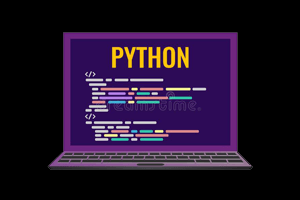startswith()
startswith(prefix, start = 0, end = len(str) - 1): 检查字符串是否以给定值开头
startwith 的参数
- prefix : 检查字符串是否开始
- start = 0:需要检查给定前缀的起始索引
- end = len(str) - 1:需要检查给予的结束索引
phone_number = '+212123456789';
print(phone_number.startswith('34',1)) # False
print(phone_number.startswith('+212')) # True
print(phone_number.startswith('56', 8)) # True
print(phone_number.startswith('78', 10, 12)) # Truereplace()
replace(old_value, new_value, count): 用给定的新值替换特定的子字符串
参数
- old_value:要替换它的特定子字符串
- new_value : 用old_value替换它的新值
- count:(可选)数字,指定要替换的旧值出现的次数。默认为所有出现
country_code = '212'
user_phone_number = f'{country_code}6123452129'
# 2126123452129
print(user_phone_number)
# 066123452129
print(user_phone_number.replace(country_code, '06', 1)) title()
title(): 此字符串方法将每个单词的第一个字符转换为大写
article_slug = '5-html-tags-that-almost-nobody-knows'
article_title = article_slug.replace('-',' ').title()
# 5 HTML Tags That Almost Nobody Knows
print(article_title)upper(), lower()
upper(): 将字符串的字符转换为大写
lower(): 将字符串的字符转换为小写
full_name = 'Aya Bouchiha'
print(full_name.upper()) # AYA BOUCHIHA
print(full_name.lower()) # aya bouchihafind()
find(valueToSearch, startIndex=0, endIndex=len(str)): 返回给定子字符串第一次出现的索引。它类似于index(),但它返回-1而不是引发异常
参数
- valueToSearch : 要搜索的字符串
- startIndex = 0 : 开始搜索的索引
- endIndex = len(str) : 结束搜索的索引
message = 'Tanger is a beautiful city'
address = 'Tanger, Morocco'
language = 'en-us'
print(message.find('beautiful')) # 12
print(address.find('Morocco', len(address) - 7)) # 8
print(language.find('en', 0, 2)) # 0
print(language.find('fr', 0, 2)) # -1概括
- startswith : 检查字符串是否以给定值开头
- title:将每个单词的第一个字符转换为大写
- replace:用给定的新值替换特定的子字符串
- upper,lower : 将字符串的字符转换为大写、小写
- find:返回给定子字符串第一次出现的索引

发表评论 取消回复